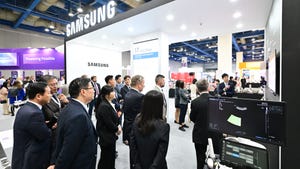Australia mobile: competitive or not?
Telstra and Optus seem to be reaping the benefit of price hikes.

Does Australia have enough mobile competition? It's no secret that the regulator, the ACCC, doesn't think so.
Two years ago, the commission blocked the merger between the two smallest players, Vodafone Hutchison Australia (VHA) and TPG Telecom, on competition grounds. VHA took it to the federal court, which ruled in its favor. TPG and Vodafone in their current state "would not create more competition," the court concluded.
Many commentators took the same view, noting that the 5G was going to be a scale game and that TPG, having lost access to Huawei's less expensive kit, was never going to build out its own 5G network. That might look like the end of the discussion, but not for ACCC chair Rod Sims.
Two months ago he called out the three dominant operators for their wide-ranging price hikes in the wake of the merger.
Telstra, Optus and Vodafone collectively held 87% of the retail mobile market and 95% of the post-paid market, the ACCC pointed out.
"Our analysis shows that consumers will now be left paying significantly more for a range of mobile phone plans at Telstra, Optus and Vodafone," Sims said. "The behavior of the three big telcos would suggest they are not concerned about losing customers to rivals."
Citing public filings, the ACCC said over the previous 12 months Telstra's post-paid charges had increased by between A$5 and A$15, Optus' had risen 8%-12%, while Vodafone had hiked mid-range prices by A$5 and its top-tier package by 50%.
With the completion of the mid-year reporting season, we have a chance to test Sims' thesis.
We learn that Optus, which had recorded a full-year loss in 2020/21, rebounded in the first quarter, with mobile services revenue up 11% and EBITDA up 36%.
Telstra CEO Andy Penn said the price rises were part of a strategy to vacate the lower end of the market and directly attributed the rise in ARPU and revenue to the higher charges.
Want to know more about 5G? Check out our dedicated 5G content channel here on Light Reading.
So the big two have done pretty well out of the higher charges.
TPG perhaps not so much. Last week it revealed an 8% fall in profit after its first full year as a merged entity. On a proforma basis revenue was down 3% and so was EBITDA, despite the A$38 million ($27.6 million) in claimed post-merger cost savings.
TPG is now looking to join Telstra and Optus in selling off its towers, estimated to be worth A$1-A$1.2 billion. Even allowing for the impact of Covid-19, it's not an auspicious start.
It looks like maybe everyone is a bit correct. The ACCC is right in suggesting market competition isn't dissuading the bigger players from putting up prices.
But if there's an oligopoly it's hard to argue that TPG is reaping the benefits - at least not yet. It's equally difficult to believe the market would be more competitive with two smaller operators rolling out their own.
So watch this space. The jury is still out.
— Robert Clark, contributing editor, special to Light Reading
Read more about:
AsiaAbout the Author(s)
You May Also Like












